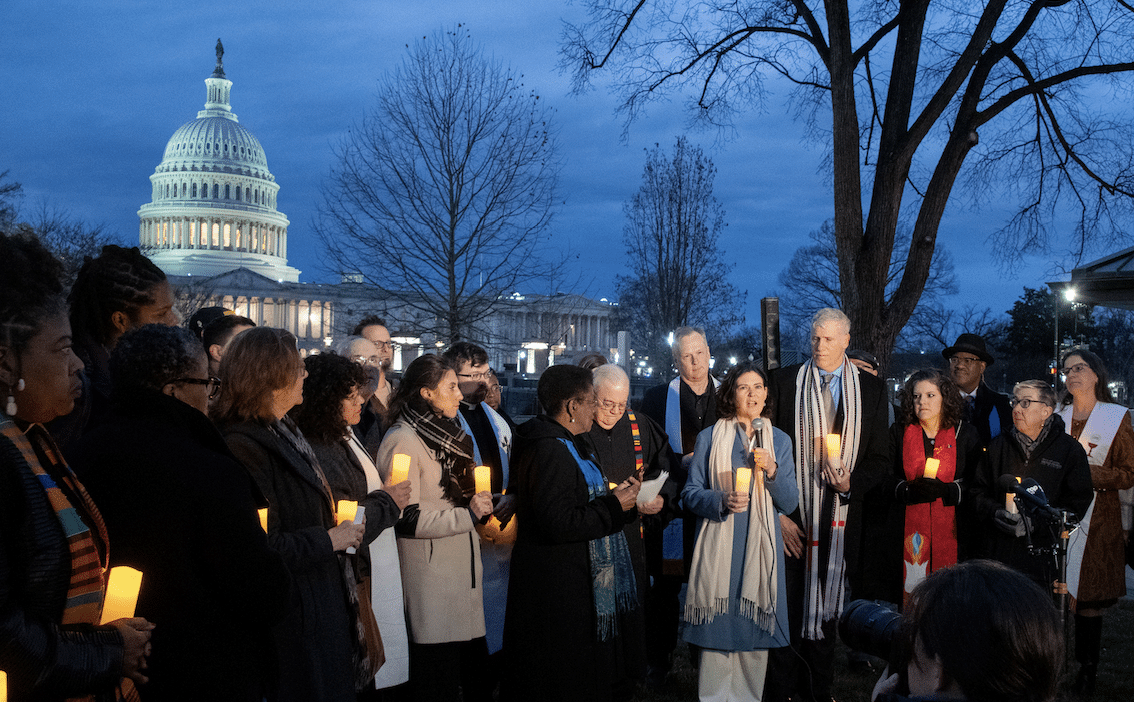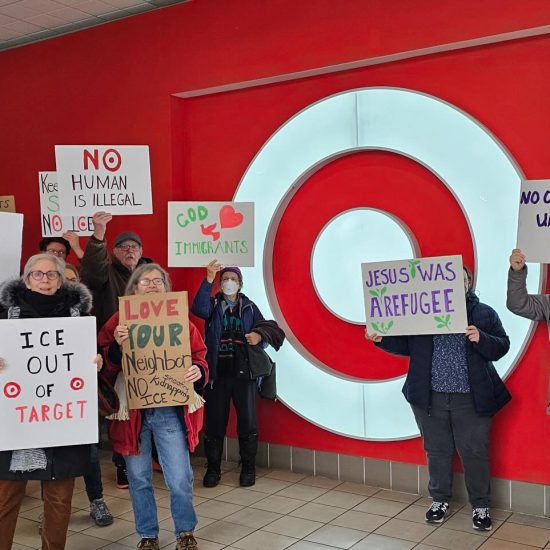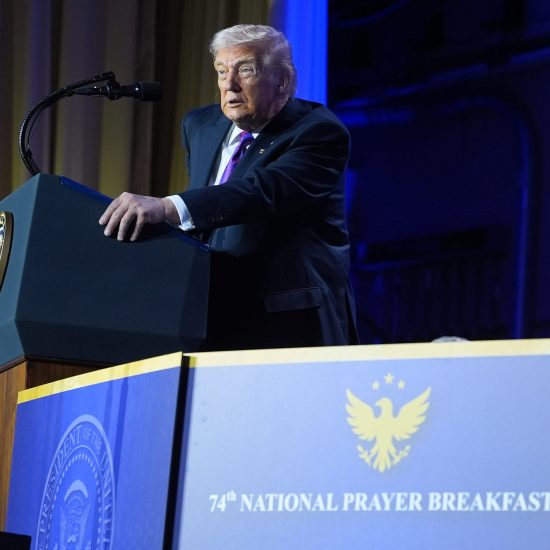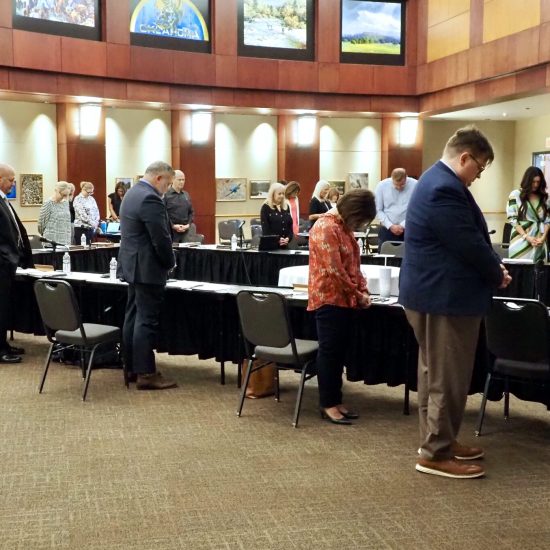
Just as the sun was rising over the U.S. Capitol building on Friday morning (Jan. 6), several prominent Christian leaders gathered across the street for a prayer vigil. This event, organized by Faithful America and Christians Against Christian Nationalism, marked the second anniversary of the insurrection that followed the electoral defeat of then-President Donald Trump.
Officially named the “Sunrise Prayer Vigil for Democracy,” this gathering was positioned as a Christian “counter-witness” to the “unholy and heretical” ideology of Christian Nationalism that galvanized the deadly attack on the Capitol two years ago. The speakers routinely emphasized that Christian Nationalism is a threat to both democracy and the church as they noted that it is broadly opposed within the Christian community.
Christian Nationalism is best understood as a religio-political framework that idealizes the fusion of conservative, White Christianity with American civic life. It fundamentally includes the promotion of nativism, White Supremacy, patriarchy, and heteronormativity, along with a desire for divinely sanctioned authoritarian control.
The diverse group of Christian leaders who participated in the vigil included Nathan Empsall of Faithful America, Amanda Tyler of the Baptist Joint Committee for Religious Liberty, Jim Wallis of Sojourners and the Georgetown University Center on Faith and Justice, Jemar Tisby of Simmons College, Paul Brandeis Raushenbush of Interfaith Alliance, Mary Novak of NETWORK Lobby for Catholic Social Justice, Shane Claiborne of Red Letter Christians, Lydia Muñoz of the United Methodist Church’s National Plan for Hispanic/Latino Ministry, Cassandra Gould of Faith in Action, Jeanné Lewis of Faith in Public Life, Denise Murphy McGraw of Catholics Vote Common Good, and additional clergy from a number of denominations.
Tyler opened the event by calling Christian Nationalism a “poisonous ideology” that represents a “gross distortion of our Christian faith.” She added, “Tragically, Christian Nationalism worked to intensify the attack on Jan. 6, 2021. And Christians bear a special responsibility in continuing to draw awareness to Christian Nationalism.” For Tyler, this vigil showcased a productive way to bring religion into the public square.
Wallis followed these opening remarks with a prayer noting that Jan. 6 is also the day of Epiphany, where Christians traditionally reflect on the story of the magi in Matthew’s telling of the birth of Jesus. “The popular word ‘epiphany,’ as we all know, means ‘to realize.’ So today, we realize how close we came to losing our democracy,” he lamented. Wallis also said that a “false Epiphany” was present two years ago and “the best answer to bad religion is true religion. And that’s why we are here … to reclaim Jesus.”
Gould added to this sentiment through a rousing prayer making the case that while “the identity of Christians was stolen and paraded around on the steps and in the House two years ago today … we are those who believe in a Jesus who practiced love, liberation, and justice — not for a few but for all.” She concluded by saying that those gathered “stand against the idol that White Christian Nationalism and the fraudulent god of White Supremacy has erected.”

Photo of the Sunrise Prayer Vigil for Democracy courtesy of BJC
Rauschenbusch added his own solemn prayer asking God, “as so many wolves continue to clothe themselves in sheep’s clothing, help us to recognize those who masquerade as followers of Jesus in their symbols and slogans, but whose hearts are filled with hate and rage and whose tongues spread lies and violence.” He concluded by noting that this remembrance is not only focused on what occurred in the past but is meant to help light the path forward in an ongoing fight against those who wield the cross as a bludgeon.
“Mixing the Christian faith with political power is kind of like trying to mix ice cream with cow manure — it doesn’t really mess up the manure, but it really ruins the ice cream,” said Claiborne, paraphrasing his partner in ministry Tony Campolo and adding some levity to the vigil. He then noted that he comes out of the evangelical tradition where “we believe in being born again, and so I pray that those who have embraced Christian Nationalism would have a born again experience. That they might have vision to love beyond biology, beyond nation … a vision for loving as big as [God’s] love … beyond all cultural boundaries. Give us a new vision of love.”
Christians Against Christian Nationalism, a project of the BJC, has previously partnered with the Freedom From Religion Foundation to publish a comprehensive report on Christian Nationalism and the Jan. 6 insurrection. BJC also submitted a letter from Christian leaders to the January 6 Select Committee, urging them to directly investigate the role of Christian Nationalism. Faithful America similarly partnered with Faith in Public Life to amass public support to pressure the Select Committee on this issue, gathering more than 10,000 signatures — though both efforts ultimately went unanswered.






